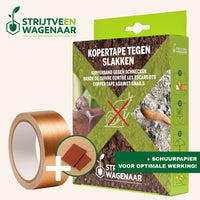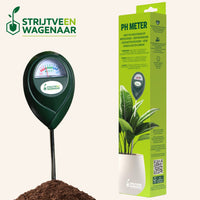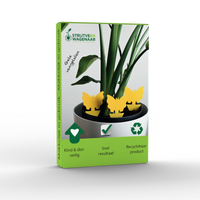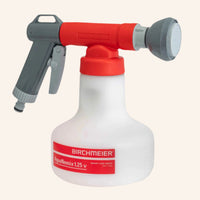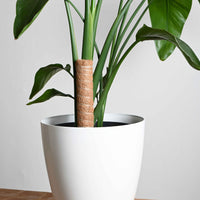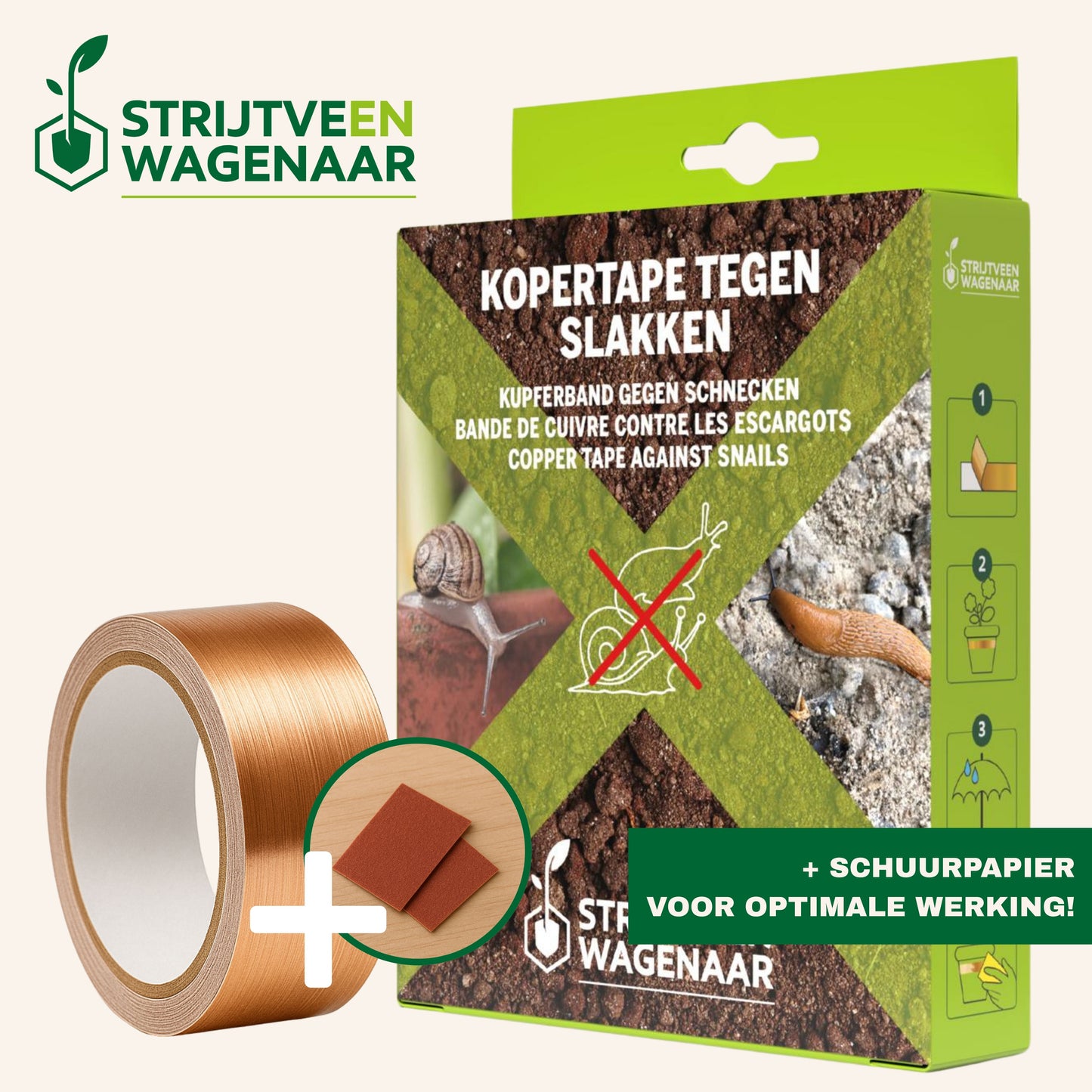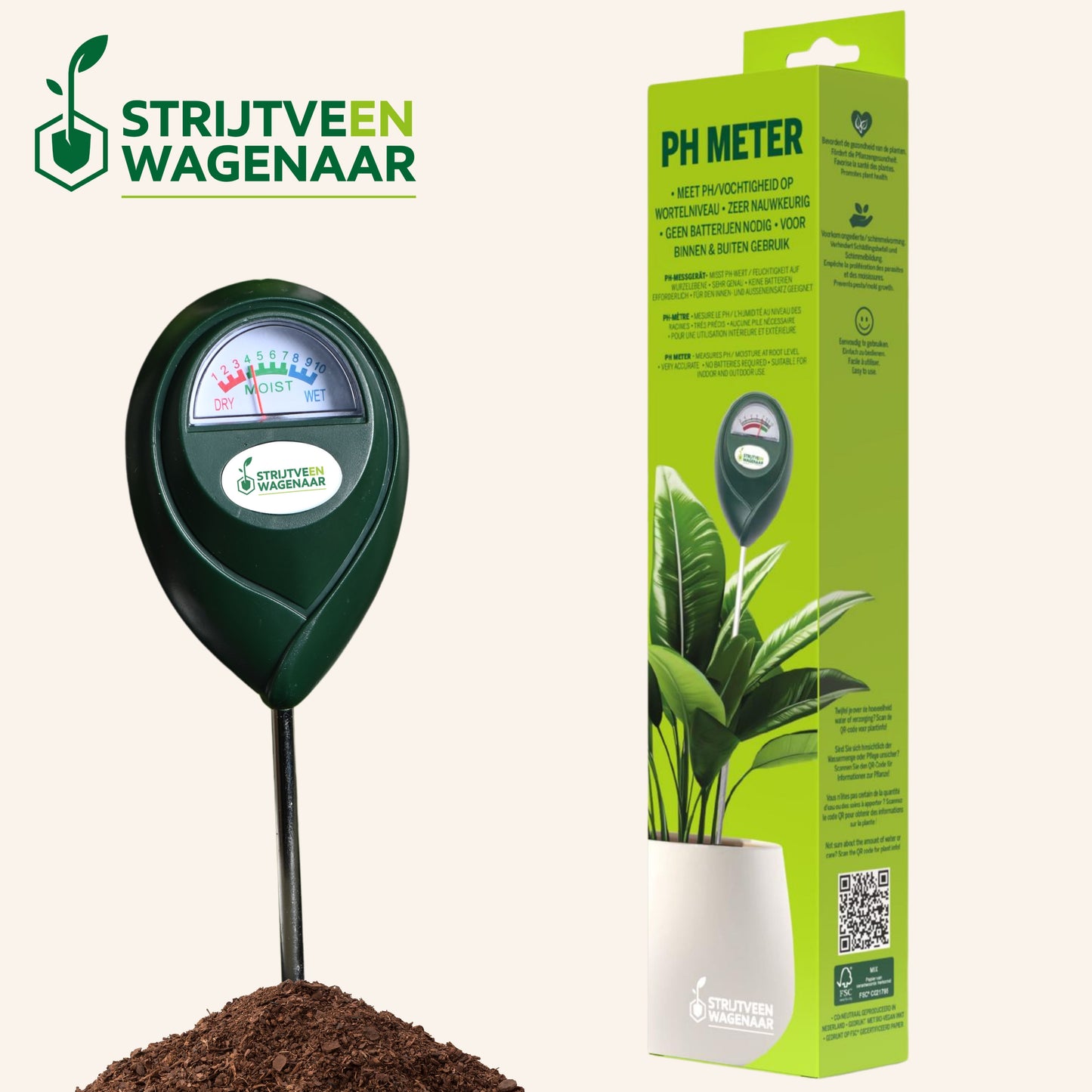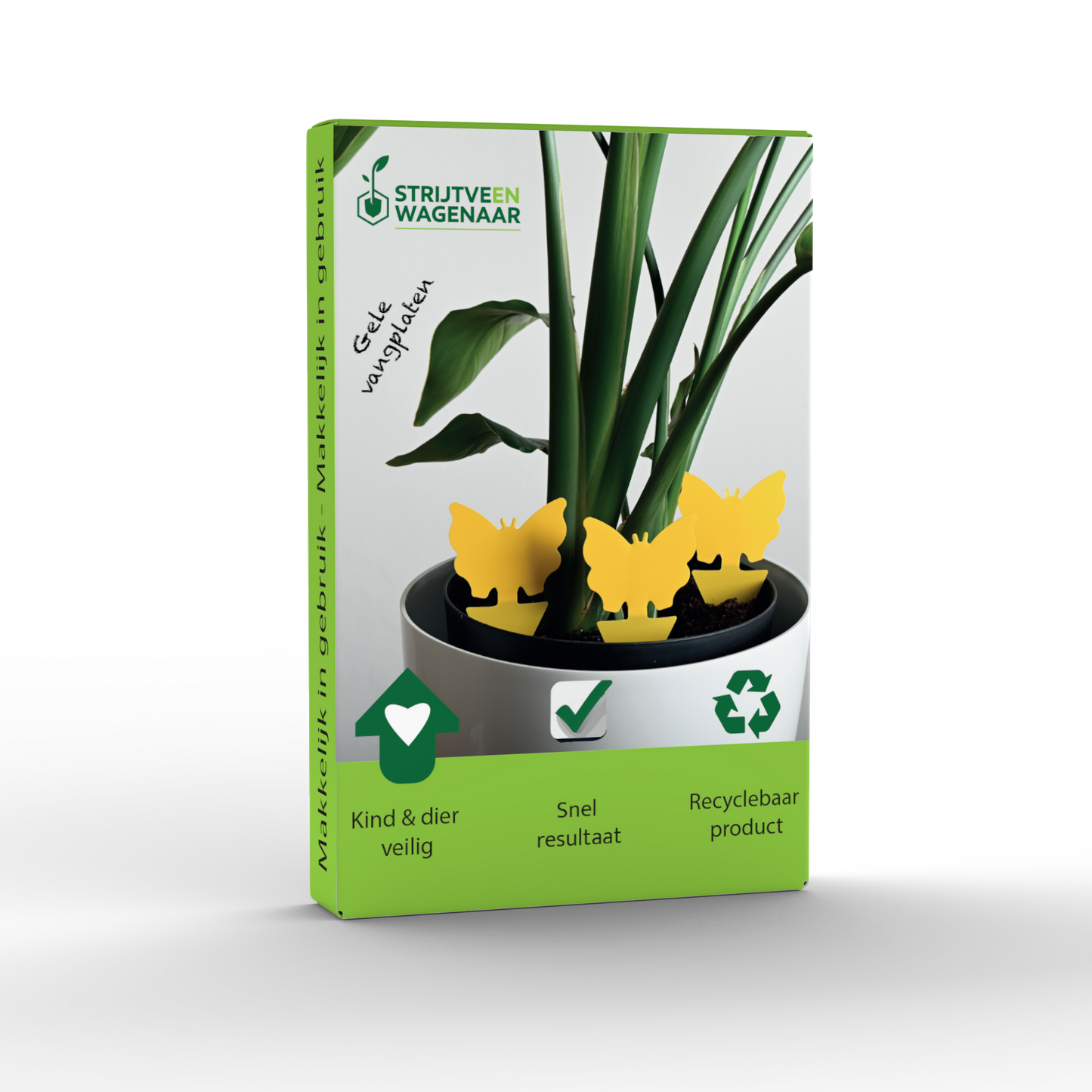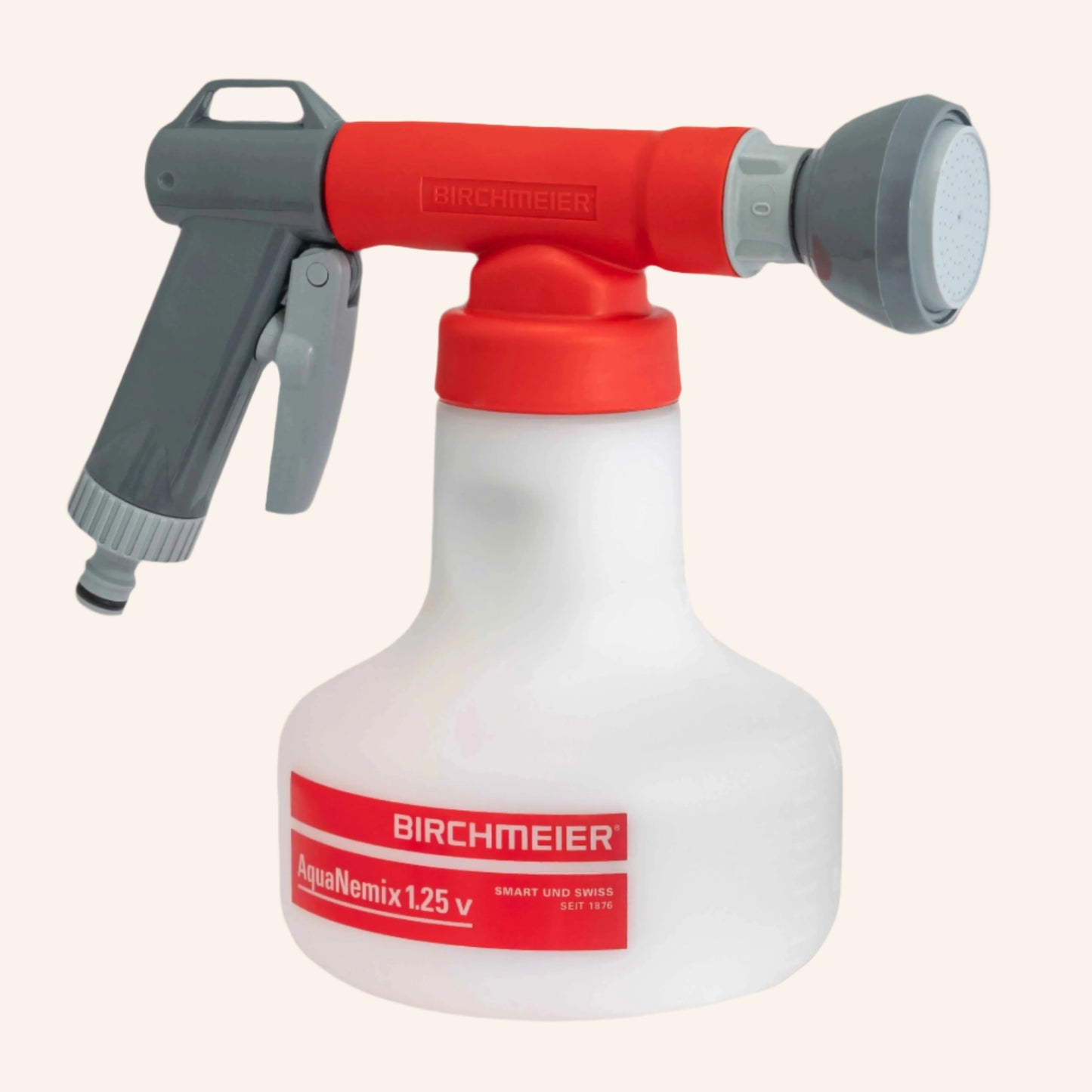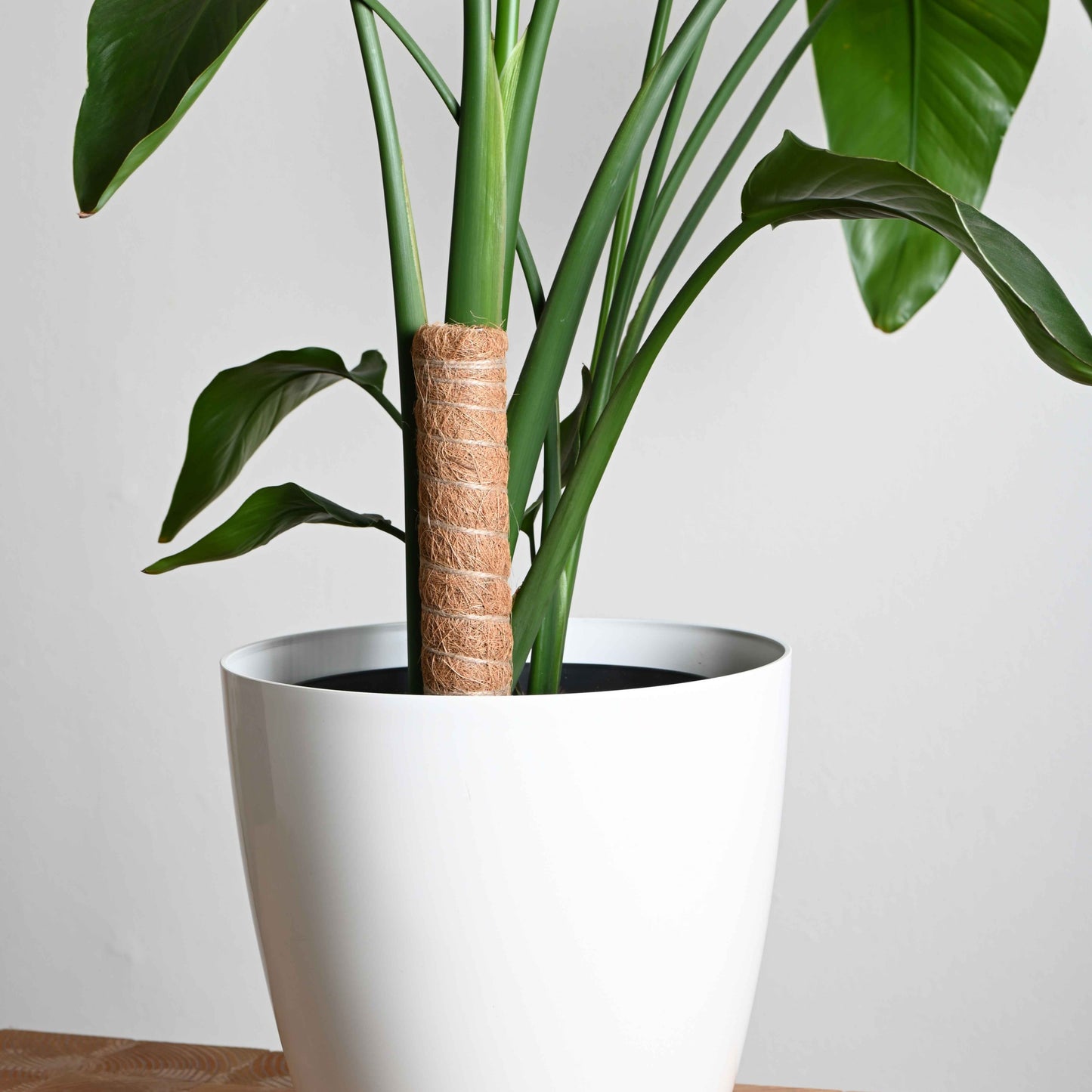
You're finally relaxing in your garden, and suddenly you see your young plants being eaten. Or your houseplant is covered in tiny flies. Pests always show up where you don't want them. And honestly? The temptation to reach for a chemical solution is strong.
But that is rarely the best solution.
In this blog post, we'll show you why natural pest control is often much smarter. We'll explain how to identify pests, what nematodes do exactly, how you can strengthen the ecosystem with flowers and clever tricks, and what you absolutely should avoid. This is your complete guide to controlling pests without pesticides.
Pests in your garden or plants? These are the usual suspects.
Not every pest is immediately obvious. Below are the seven most common culprits.
The 7 most common pests in a row
• 👉 Leatherjackets : greyish-gray larvae that eat your grass bare from underneath
• 👉 Grubs : beetle larvae that nibble on the roots of your lawn
• 👉 Ants : form nests under tiles and protect aphids from getting their honeydew
• 👉 Fungus gnats : small flies that suddenly emerge from your potting soil, especially on houseplants
• 👉 Snails : they eat everything that is soft and juicy, especially in spring
• 👉 Yew beetles : beetles that eat leaves, their larvae eat roots
• 👉 Ticks and fleas : particularly annoying for humans and animals, often found in tall grass or shady corners
We've written separate blogs for each of these pests, so you'll know exactly which one you're dealing with. Feel free to click through if you'd like to know what you're dealing with.
Why you should not choose chemical pest control
Chemical pesticides seem convenient . One spray and the pest is gone. However, they have significant drawbacks. You're not only killing the culprit, but also beneficial insects, soil life, and sometimes even your plants. Moreover, many chemicals are toxic to bees, pets, and even children.
And we haven't even mentioned resistance yet. Many insects and larvae become accustomed to the poison and, over time, simply survive. You then have to spray more and more for less and less results.
Natural pest control works differently. It tackles pests without damaging the rest of your garden or home. It strengthens the natural balance, meaning you'll actually have less work in the long run. Smarter, safer, and more sustainable.
Nematodes: small helpers with a big effect
Many people are unfamiliar with nematodes , or find the idea of letting worms crawl around in your garden a bit odd. But don't worry: they do their work quietly, purposefully, and disappear on their own once they have nothing more to do. Time to get to know them a little better.
What exactly are nematodes?
Nematodes are microscopic worms that live in the soil. They do exactly what you use them for: detect and eliminate harmful larvae. No mess, no residue, and no nasty side effects .
How does that work? Nematodes penetrate the larvae of pest insects and halt their development. They then reproduce until the pest is gone. Then they disappear from the soil naturally when there's nothing left to eat .
There are different types of nematodes, each with its own specialty. That's why we have a dedicated solution for every pest:
• 👉 Nematodes against leatherjackets
• 👉 Nematodes against grubs
• 👉 Nematodes against ants
• 👉 Nematodes against fungus gnats
• 👉 Nematodes against snails
• 👉 Nematodes against yew beetles
• 👉 Nematodes against ticks and fleas
They're safe for humans, animals, bees, and plants . You just need to pour or spray them correctly. And no, you won't see them. You'll just notice your pest slowly disappearing.
Grandma knows best: simple tricks for each plague
Sometimes the solution is right in your kitchen cupboard. Back in the day, people didn't need poison to keep snails or ants at bay. And many of those old-fashioned tricks still work surprisingly well. Grandma has a clever solution for every pest. Here's a selection from her secret recipe book:
• Leatherjackets ? Place a wet burlap sack on your lawn in the evening. The larvae will crawl underneath, and you can simply sweep them away.
👉 View more grandma's best tips against leatherjackets
• Grubs ? Let chickens or birds roam around your lawn for a bit. They love them.
👉 View more grandma's best tips against grubs
• Ants ? Pour a bucket of cold water over their nest or sprinkle some coffee grounds between your tiles.
👉 View more grandma's best tips against ants
Fungus gnats ? Sprinkle a thin layer of cinnamon on the potting soil. It inhibits mold and smells nice.
👉 View more grandma's best tips against fungus gnats
• Snails ? Place a saucer of beer in the garden and you'll automatically attract them to their latest party.
👉 View more grandma's best tips against snails
• Yew beetles ? Place a plank in the garden and turn it over in the morning: beetles like to hide under it.
👉 View more grandma's best tips against yew beetles
• Ticks and fleas ? Keep the grass short in areas where you walk and don't let your dog lie in rough corners.
👉 View more grandma's best tips against ticks and fleas
Natural enemies: strengthen your garden from within
In a healthy garden, many animals work alongside you unnoticed. These natural enemies keep pests under control and bring more life to your garden.
These animals help you with pest control
Some animals naturally love pests and will naturally keep your garden in balance. Give them a good spot, and they'll help you control them. Below, you'll see which natural enemies work well and which pests they're most effective against.
• Hedgehogs eat snails and larvae, among other things
• Ladybugs love aphids
• Ground beetles hunt larvae, caterpillars and snails
• Toads catch all kinds of insects, larvae and snails
• Predatory mites eat small pests such as spider mites and thrips
• Parasitic wasps parasitize on, among other things, fungus gnats and caterpillars
• Spiders catch mosquitoes, aphids and fungus gnats
• Bats hunt moths and mosquitoes
• Birds like to peck at grubs, caterpillars and ants
But they don't come by themselves. Fortunately, you can make them happy.
How do you attract natural enemies?
Provide hiding places like cluttered corners, piles of wood, leaves, or stones. Sow a flower mix or bee mix to attract more insects. This provides food and attracts predatory insects. Add an insect hotel, provide a water dish, and don't forget to leave some clutter. Nature doesn't like perfection, and your garden doesn't have to be either.
Healthy soil = fewer pests
Many pests begin underground. Beneficial soil creatures disappear in acidic or wet soil, giving larvae free rein. Fungi and fungus gnats also thrive in soil that is too wet or too compact.
If you want to prevent pests, start with your soil. In our separate soil blog , we explain exactly how to keep your soil healthy with compost, mulch, ground cover, and most importantly: rest. The better your soil is balanced, the stronger your plants, and the less likely pests are to occur.
What you should definitely not do
Sometimes you see people really mess up. Here are a few things you'd better avoid:
• Mow everything short at once (eliminates natural enemies)
• Spraying poison in warm weather or on flowering plants (bad for bees)
• Scarifying the lawn in the middle of summer (weakens the lawn)
• Allow the potting soil to dry out and then overwater (ideal for fungus gnats)
• Sprinkle slug pellets where children or pets play
Better yet, choose a solution that suits your pest, the season, and the ecosystem. You'll not only prevent problems, but you'll also save yourself a lot of frustration.
Do you have damage to your plants?
Sometimes help comes too late, and your plants have already taken a hit. Give them a boost with Liquid Gold Leaf: a unique plant food that contains all the essential nutrients, including calcium. This will repair damaged roots, stimulate new growth, and help your plants become strong and healthy again.
Where do you start with natural pest control?
Already have an infestation? Or do you simply want to prevent them from starting? Then start with the basics. Identify the pest you have, what's happening in your garden or potting soil, and choose a natural solution that works.
